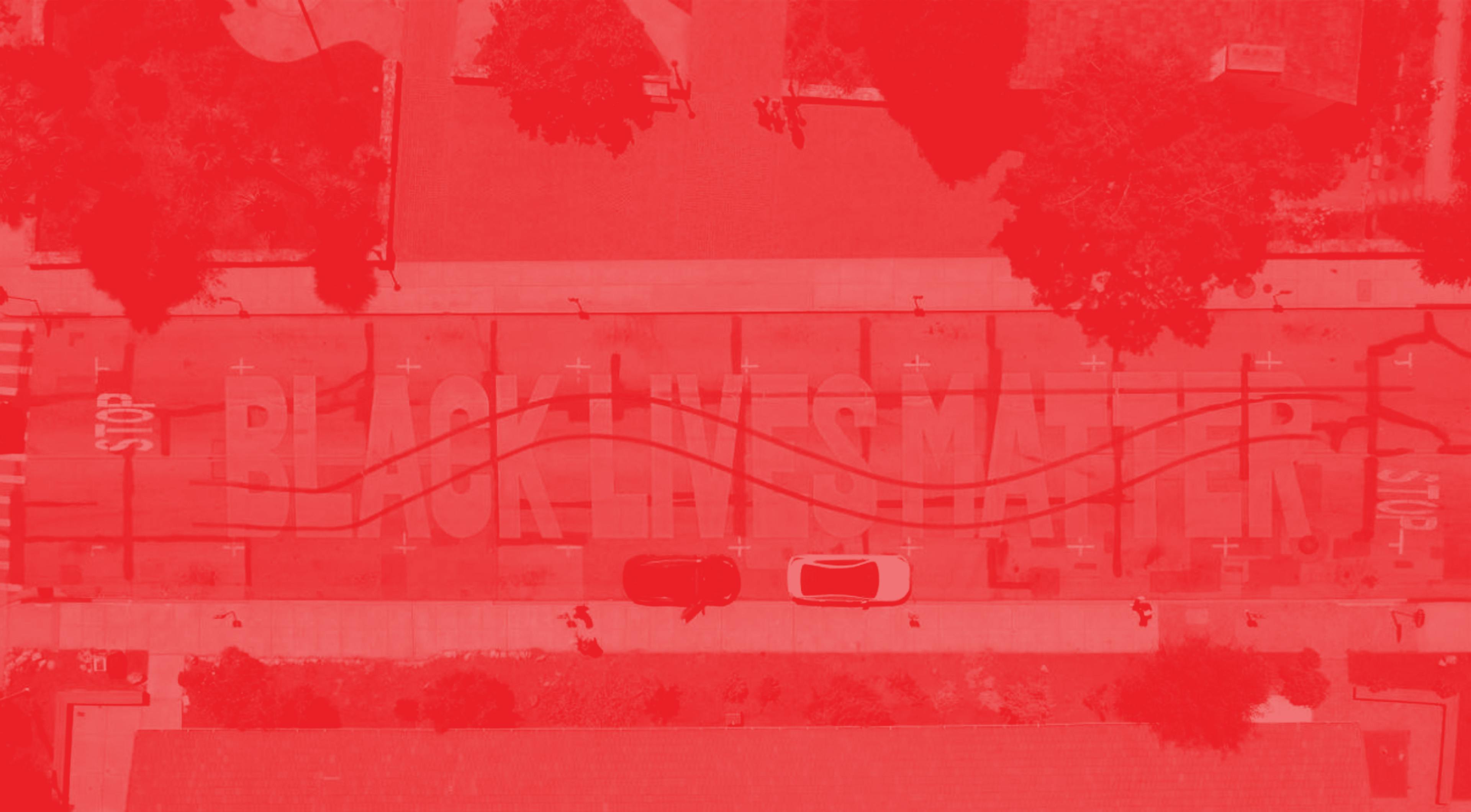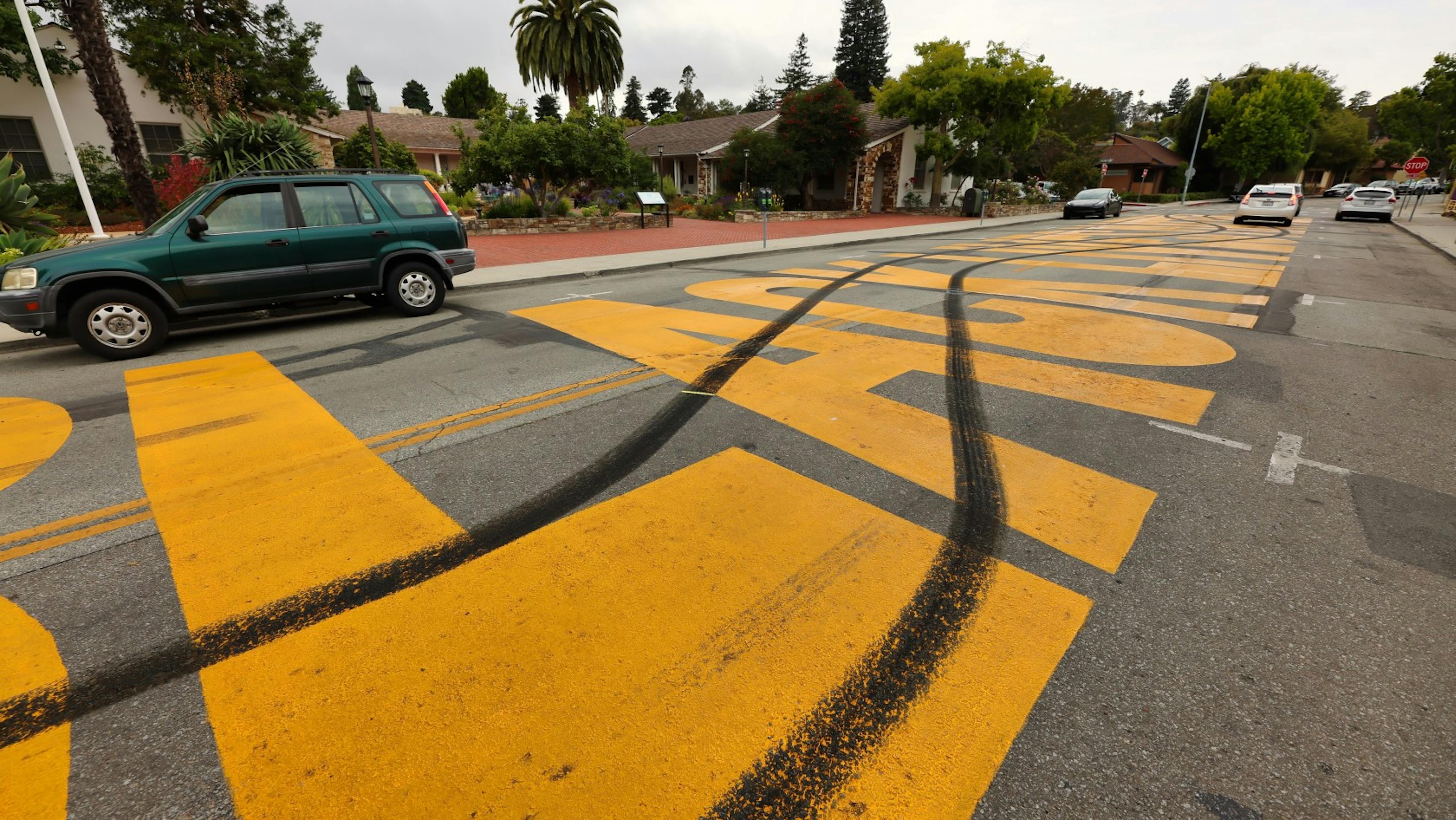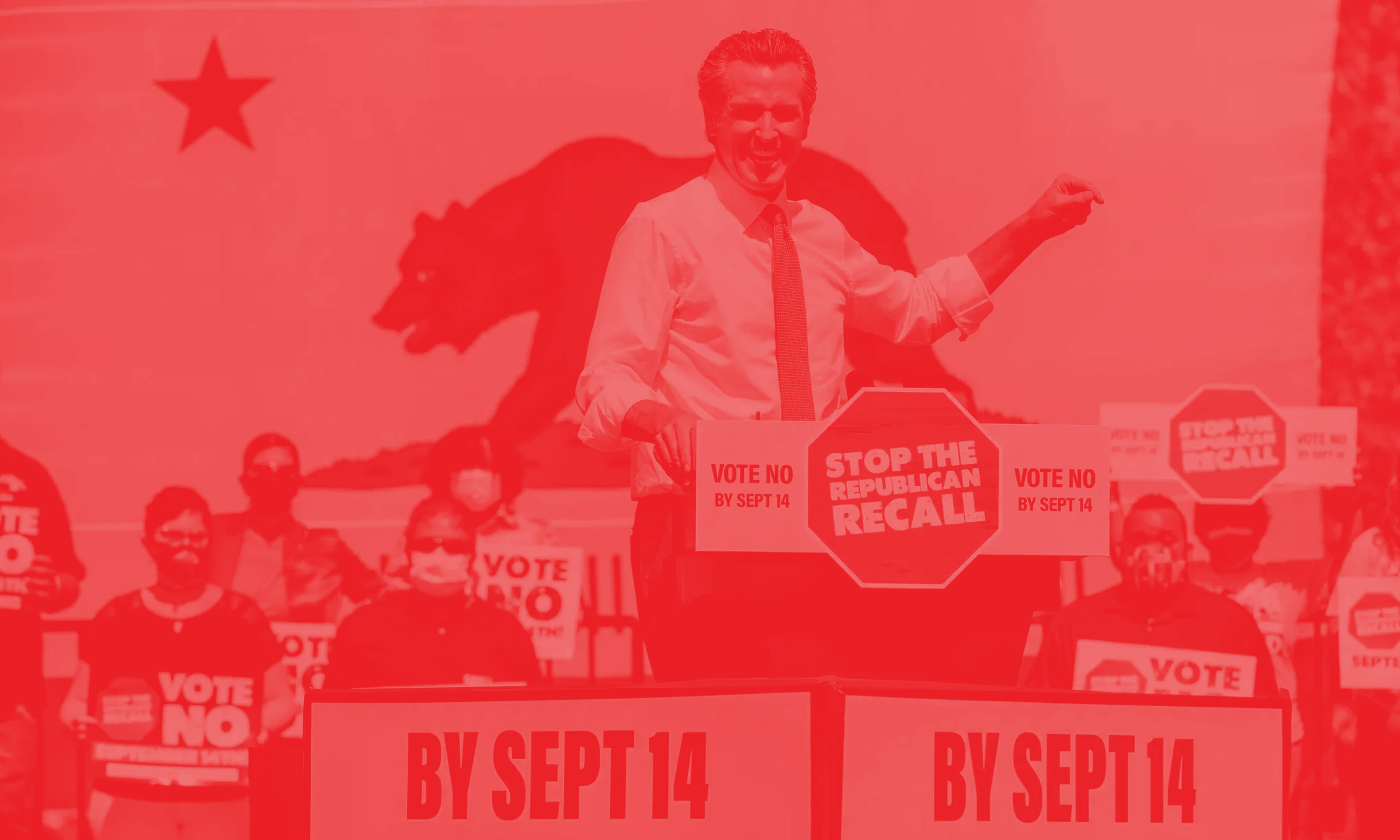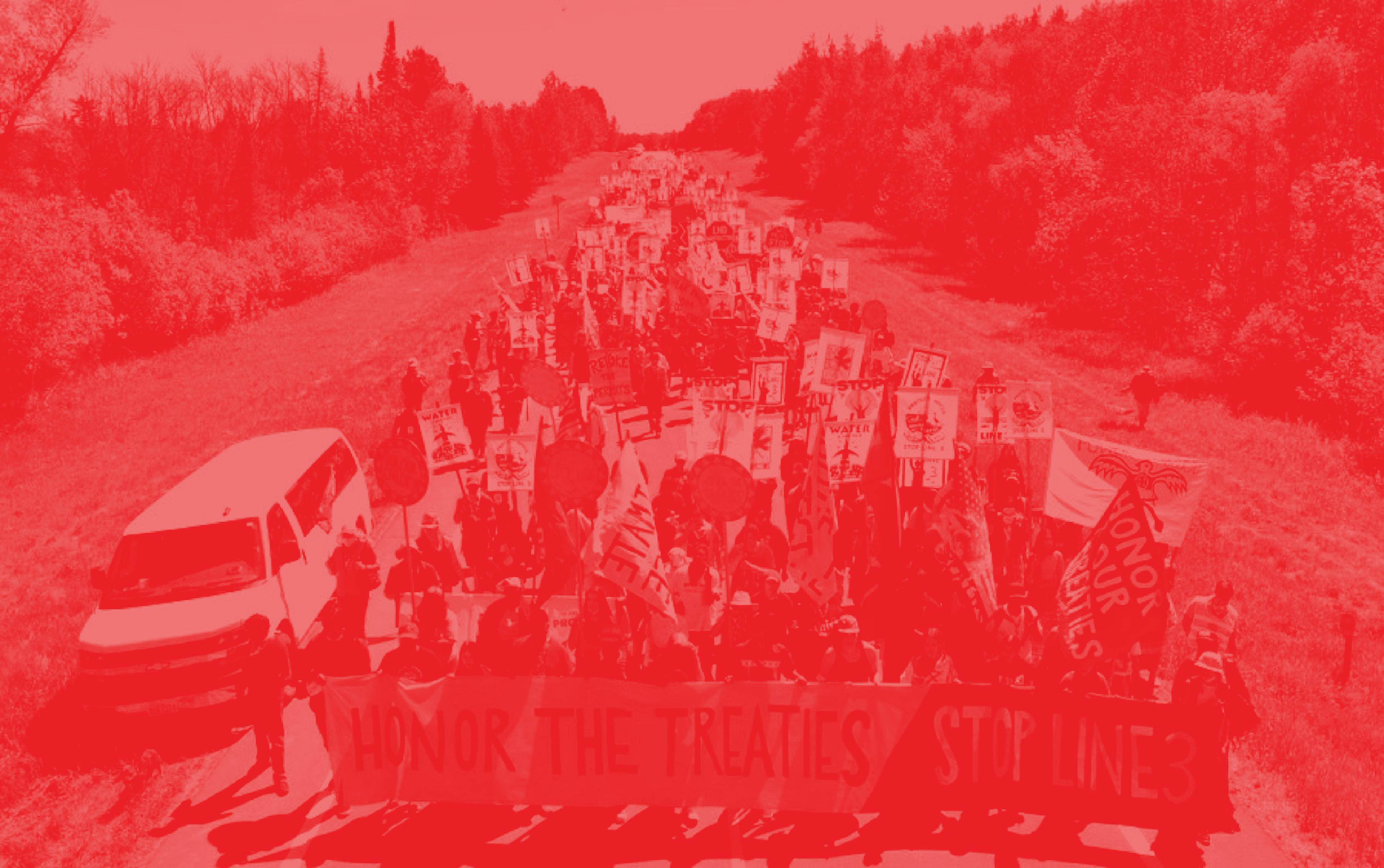
Toward an Abolitionist Horizon: On the Vandalism of Santa Cruz’s Black Lives Matter Mural
We are writing this statement as BIPOC (Black, Indigenous, and People of Color) community members in Santa Cruz who are horrified by the racist, white supremacist vandalism of the Black Lives Matter mural in Santa Cruz, and who nonetheless remain invested in imagining and pursuing non-carceral forms of accountability, justice, and reconciliation. We are dismayed that the responses to the mural vandalism that are currently being advocated in public conversation have strayed far from one of the central demands of the Black Lives Matter movement itself—to defund the police.

Vandalized Black Lives Matter mural, as appearing in Lookout Santa Cruz (photo: Kevin Painchaud)
As BIPOC abolitionists organizing in Santa Cruz, we have been told for over a year by local leaders that the movement to defund the Santa Cruz Police Department is a demand stemming solely from white leftists who do not care about Black people. Or—according to a recent interview with Santa Cruz Police Chief Andy Mills in the Good Times—that those Black people who are publicly advocating for police defunding are merely “fringe” elements who do not represent the real interests of the local Black community. Putting aside the reductionistic idea that all Black folk can and should speak with one unified voice, we are not fringe. Rather, we are following in the footsteps of a long tradition of Black-led (and specifically Black, queer, femme-led) abolitionist work, including decades of well-documented research on the limits of police reform. By supporting the demands of the global Black Lives Matter movement to defund the police, we are echoing demands made by people of color around the world, as well as here in Santa Cruz.
The harm caused by the vandalism of the Black Lives Matter mural is far-reaching, affecting many in Santa Cruz—from the artists and activists who designed the mural, to the community members who helped to paint it, from the Santa Cruz Black community who has mobilized for racial justice in our county and beyond, to all people of color in this community. Yet we remain unconvinced that the solutions currently being advocated—including charging the perpetrators with a hate crime, and hiring additional law enforcement officers who would be tasked with investigating racially-motivated incidents—would actually begin to repair this profound harm. The Black Lives Matter Movement has taught us that policing is both a product of, and actively reproduces, structural racism in our society. With these lessons in mind, we should be very wary of any proposed solutions that seek to expand the power and size of police, or “re-brand” them as defenders of racial justice.
Right now, we have an important opportunity to ask some hard questions about what real, meaningful, substantive justice could look like in this situation. What benefits could be actually reaped by punishing the perpetrators with the tools of the carceral state? Would this truly rectify the psychic harm of the mural vandalism and prevent further racist injustices from happening in the future? And what shape could an alternative form of community-based accountability take?
We deserve an approach to justice that will bring us closer to liberation, justice, and community empowerment. Instead of looking to the police who caused the harm in the first place, we need our community to come together to organize transformative, abolitionist responses to the white supremacist actions taken against the Black Lives Matter mural.
We believe that punishment enacted by the state constitutes little more than a band-aid solution, one that will do very little in providing actual repair or deterring future harmful acts. Even in our community, we have seen that appeals to the police to rectify racial injustice have had paltry results. Last summer, members of the BIPOC community asked SCPD numerous times to investigate the repeated vandalisms of the community Black Lives Matter altar at the downtown clocktower, to no avail. Black activists asked SCPD chief Andy Mills to condemn the flying of Blue Lives Matter flags (widely recognized as a hate symbol) around the city, again to no avail.
During meetings between members of the Black community and Mills last summer, in the wake of George Floyd’s murder, many of us repeatedly pleaded with him not to post photos to his Instagram account of people who had been arrested but not charged with crimes, because the circulation of these images perpetuated racist stereotypes of criminality, again to no avail. But when AB1475, which prohibits the circulation of mugshots of nonviolent crime suspects on social media, was approved by California’s governor on July 23, 2021, SCPD later congratulated themselves for complying with it—as if the initiative had not been spearheaded by racial-justice advocates, including local activists like us.
Ultimately, addressing the mural vandalism as an incitement for police intervention (and a justification for the expansion of the police force) redirects focus away from the way that policing itself has posed a threat to the safety of Black people and other people of color in Santa Cruz. Abolitionist lawyer Dean Spade reminds us that hate crime laws do not deter violence against marginalized communities. By focusing on the violence of individuals rather than the violence of police, they only “strengthen and legitimize the criminal punishment system, a system that targets the very people these laws are supposedly passed to protect.” In other words, hate crime laws do not actually improve the lives of Black or trans people.
For many of us, the pain caused by the vandalism of the Black Lives Matter mural is minimized by the pain, fear, and trauma of encounters with police, including in Santa Cruz—a reality that has been borne out in many of the responses to a survey we are currently conducting with community members about how policing fits within their overall understandings of safety. We must hold tight to the fact that legitimizing and investing more resources in the system of policing will only bring disproportionate harm back to our communities.
Even BIPOC police officers are complicit in harm to BIPOC civilians, as we saw most brutally in the 2015 murder of Freddie Gray by Baltimore police. Rather than funding superficial anti-bias educational programs or reforming laws that police will still routinely ignore—which clearly do not work—we can redirect this energy toward actually dismantling the institution that enacts racism most brutally in our community. This is not a far-fetched goal; it can be accomplished through broad-based community organizing, budget redistribution, and concrete policy changes (check out the resources of #8toAbolition and Critical Resistance).
The criminal justice system can produce only one outcome: punishment for the perpetrators of this harm. Punishment imposed by the current system is passive in the sense that it requires nothing of the convicted—including the two men in the case of the Santa Cruz mural defacement, if found guilty—except for them to sit and suffer in jail. This type of “justice” does not align with an abolitionist vision of transformative justice, as it creates no potential for reparative action or accountability that would come from the men themselves. We deserve something more, something better.
We deserve an approach to justice that will bring us closer to liberation, justice, and community empowerment. This is a call to collectively devise a different notion of justice, an invitation to build new structures of accountability. Instead of looking to the police who caused the harm in the first place, we need our community to come together to organize transformative, abolitionist responses to the white supremacist actions taken against the Black Lives Matter mural. We do not want any more funding or resources to go to the SCPD in response to our pain. We want to see more people organizing for a world where we no longer put people in cages, and where Black lives are cherished by all. Our group is on that journey and we hope more people will join us.
There is no clear blueprint that will put us on a certain path to achieving non-carceral forms of justice and accountability. We are interested in convening with other BIPOC to discuss what these alternatives could look like and how we can get there. As a baseline, we may strive for the perpetrators to recognize the harm they have caused and its impact on the BIPOC community, for them to make whatever type of restitution we deem is appropriate based on our own needs, and for them to contribute in some way to our liberation.
But what is currently underway will achieve none of that.
We are currently focused on creating practical and effective strategies for responding to a range of medical and mental health needs within our community so that police will no longer be positioned as default first responders. As a first step, we invite you to fill out this short survey on your experience of policing in Santa Cruz, especially as it relates to medical and mental health needs.
In solidarity and struggle,
Santa Cruz People Over Policing (SC POP)
We are a collective of BIPOC in Santa Cruz who are committed to police abolition and reimagining public safety in our city and county. We have been gathering and organizing together since the summer of 2020. We convened an Abolition 101 reading group, and under the name Abolitious organized the Abolition Fair in the fall of 2020. Our newest project is called Santa Cruz People Over Policing (SCPOP), which is focused on taking concrete steps toward defunding the police and building alternative models of community care in Santa Cruz. We are inspired by the Oakland Power Projects and understand ourselves as working in the tradition of Black Feminist abolitionist organizing. Through our collective work we seek to challenge the idea that police defunding is a “white” issue, or people of color in Santa Cruz do not care about abolition. Contact us at scpeopleoverpolicing@gmail.com

